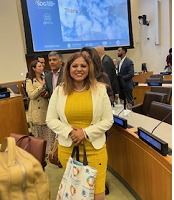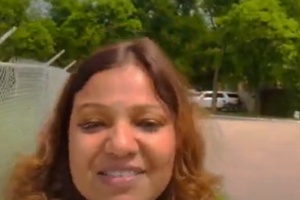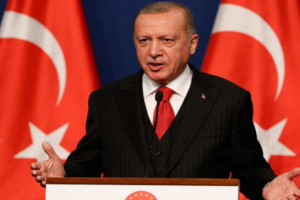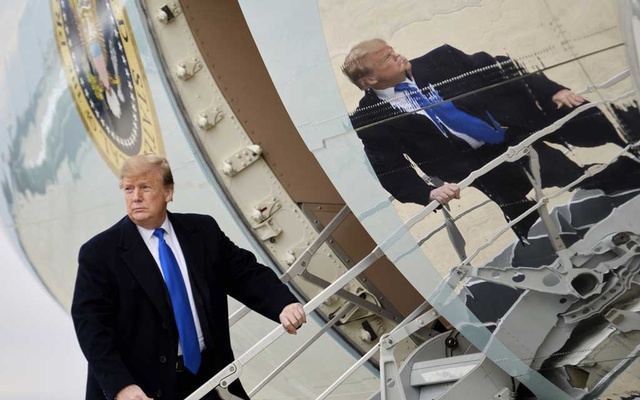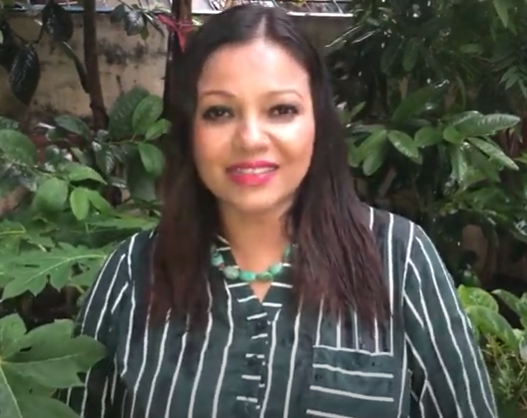With the coronavirus spreading fast through the Gaza Strip, the Palestinian militant group Hamas agreed Monday night to cool its latest round of hostilities with Israel in exchange for a cash infusion from Qatar and for Israel’s agreement to let fuel flow back to Gaza’s power station, officials said.
For several weeks, Gaza, ruled by Hamas, has launched hundreds of balloons laden with incendiary devices and explosives — and more than a few rockets — into southern Israel, torching large tracts of farmland and keeping thousands of Israeli civilians on edge. Israel has responded with frequent airstrikes and tank fire on what it said was Hamas military infrastructure in Gaza.
Far from resolving anything, though, Monday’s agreement — which effectively bought the promise of a month’s calm — was just another familiar step in the miserable minuet that has entangled Israel and Hamas for years.
Hamas again promised that it was to get long-sought progress on major economic projects; it did not detail them, but as of last week it was demanding an extended power line and a new industrial zone that could alleviate Gaza’s appallingly high unemployment rate.
By contrast, Israel announced that it was merely allowing routine cargo activity at the Kerem Shalom crossing into Gaza and permitting Gaza’s fishermen to resume plying the Mediterranean waters up to 15 nautical miles off its shores.
Once again, it was understood by each side that the failure to live up to its promises could bring about another round of escalation.
“This decision will be tested on the ground,” the Israeli military agency responsible for Gaza, the Coordinator of Government Activities in the Territories, said in a statement. “If Hamas, which is accountable for all actions that are taken in the Gaza Strip, fails to stand by its obligations, Israel will act accordingly.”
Yehya Sinwar, the leader of Hamas in Gaza, announced that the agreement would “contain the escalation and halt the Zionist aggression on our people.”
Talal Okal, a Gaza-based political analyst, said the understanding had little hope of leading to a long-term cease-fire.
“We’re in the middle of a vicious cycle,” he said. “It seems that the situation hasn’t changed significantly and that the tensions can come back in the snap of a finger.” He said the success of Monday’s agreement would depend on Israel’s willingness to implement it — something he accused the country of evading in past deals with Hamas.
The agreement was trumpeted by Mohammed al-Emadi, a Qatari ambassador who heads that nation’s Committee for the Reconstruction of Gaza and has been shuttling back and forth between Israel and Gaza for days. But while he alluded to projects that Hamas has agitated for, he said that the calming of tensions was “paving the way” for their implementation, suggesting that work was not about to begin imminently.
None of the parties publicly disclosed the amount of Qatar’s cash infusion. A person familiar with the agreement, who spoke on condition of anonymity to discuss it, put the payment at $27 million.
It was not immediately clear what Hamas would use the money for. Officials say that previous payments from Qatar have been used in Gaza, which is in dire economic condition, to buy fuel, pay civil servants’ salaries and provide relief to impoverished families.
Politics has loomed over the heated-up Gaza-Israel border in multiple ways, analysts said — particularly with an election coming up to decide the leadership of Hamas. Khaled Mashaal, a former Hamas leader now in exile in Qatar, is believed to be vying to topple Ismail Haniyah, the Gaza-based Hamas political director.
Haniyah and Sinwar have sought to show that they are capable of compelling Israel to make meaningful improvements to conditions in Gaza, whether in easing its blockade or in advancing big projects.
But the political situation in Israel, where Prime Minister Benjamin Netanyahu has been in a kind of permanent campaign mode, repeatedly dangling the prospect of taking the country to another election, has made it difficult to imagine Israel doing much to benefit Hamas in the near future.
For Qatar, meanwhile, restoring calm can enhance its stature in the region, said Celine Touboul, a Gaza expert and co-director of the Economic Cooperation Foundation, an Israeli think tank. “Simply put, they want to be a player,” she said. “And to be a player for them is to demonstrate that they can contribute to shift the situation and calm it.”
Hamas noted in announcing Monday’s understanding that it would help provide a measure of relief to Gaza in light of its battle with the coronavirus. But the most crucial missing element in that fight was electricity, as Israel had halted shipments of fuel into Gaza in retribution for the flaming balloons and rockets.
That standoff became dire last Monday, when Hamas officials reported the first cases of community transmission. And the spread of the virus in Gaza appears to have accelerated: As of Monday morning, there were 243 active cases of local spread and 37 among returning travelers held at quarantine facilities, according to the Hamas-run health ministry. Officials have reported three virus-related deaths in the past week.
Virus testing kits are in short supply in Gaza, the ministry said, and it is testing at a slow pace. As of Monday morning, it had conducted just 670 tests in the preceding 24 hours.
Nickolay E Mladenov, the United Nations special coordinator for the Middle East peace process, wrote on Twitter that he welcomed Monday’s agreement: “Ending the launching of incendiary devices and projectiles, restoring electricity will allow #UN to focus on dealing with the #COVID19 crisis. All parties should return to the calm understandings.”
Mladenov and al-Emadi, among other officials, were expected to meet Tuesday at the Erez crossing between Israel and Gaza.
Earlier on Monday, the UN humanitarian coordinator for the Palestinian territories, Jamie McGoldrick, called upon Hamas to stop the rockets and balloons and Israel to restore electricity, which was down to just four hours a day, “in line with its obligations as an occupying power.”
“The situation is hindering the provision of services in the quarantine facilities and the capacity of the health system to cope with the increased demands, such as the ability to detect new COVID-19 cases,” McGoldrick said. “Power outages in hospitals are having serious repercussions, with patients in intensive care, chronic and emergency cases particularly vulnerable.”






